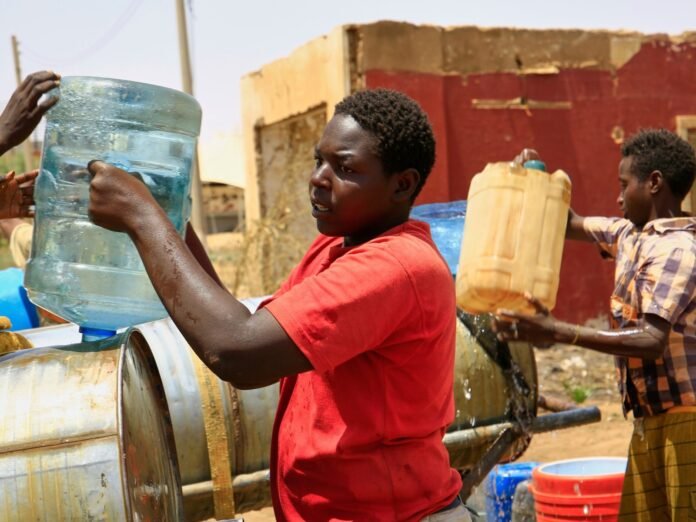Aid workers fear arrest and worsening of hunger crisis that already threatens millions of people.
Aid workers and activists are fearful that new regulations announced by Sudan’s army-backed government will lead to a crackdown on local relief volunteers, exacerbating the catastrophic hunger crisis affecting 25 million people across the country.
A directive announced by Khartoum state on its official Facebook page this month said all relief initiatives in the state must register with the Humanitarian Aid Commission (HAC), a government body that oversees humanitarian operations in Sudan.
The HAC was given expanded powers to register, monitor and – critics argue – crack down on local and Western aid groups by former leader Omar al-Bashir in 2006, according to aid groups, local relief volunteers and experts.
“HAC is trying to monitor and restrict the work of ERRs by forcing us to register, … and I fear they will arrest volunteers if we keep working but don’t register,” Ahmed*, a local volunteer in Khartoum, said, referring to the Emergency Response Rooms, grassroots committees that are spearheading the humanitarian response in Sudan.
Khaled Abdelraheem Ahmed, the HAC commissioner for the state of Khartoum, confirmed the new directive to media.
He said registration requires paying a fee of roughly $800 and submitting a list of names of the employees or volunteers in each relief initiative.
“[Nobody] is allowed to carry out humanitarian activities without registering,” Abdelraheem said.
The ERRs maintain a public stance of neutrality in an effort to preserve humanitarian access irrespective of who controls the areas they operate in at any given time.
Still, they have been attacked by both sides throughout the war.
Local activists, foreign aid workers and experts now suspect that the HAC is trying to register ERRs in Khartoum to try to monitor and coopt their activities and profit from their already meagre budgets.
Any constraints or impediments to their work could have devastating consequences for civilians in Khartoum, said Kholood Khair, a Sudan expert and the founder of the Confluence Advisory think tank.
“In Khartoum, it’s one meal a day for a lot of people in a lot of areas,” she told media.
Indispensable relief
“If people start missing that one meal because [ERR] volunteers are not turning up because they don’t feel safe enough to [show up and feed them], then obviously that means that famine levels will go through the roof,” Khair added.
Experts and aid workers previously told media that they consider the HAC an outfit for military intelligence.
The head of the HAC, Najm al-din Musa, previously denied allegations that the commission was involved in aid diversion, telling media that they were “lies”.
The HAC has long been accused of imposing bureaucratic impediments to prevent international aid groups from reaching regions outside the army’s control.
It often forces aid agencies to apply for multiple – seemingly endless – permissions from various ministries and security branches as a way to significantly delay or outright block access to regions outside the army’s control and in urgent need, aid workers previously told media.
This practice has led experts, global relief workers and human rights groups to accuse the army of using food and aid as a weapon of war.
Hamid Khalafallah, an expert on Sudan’s grassroots movements and a PhD candidate at Manchester University in the United Kingdom, believes the HAC is further politicising aid by forcing ERRs to register.
“[The HAC] wants to control the programming of [the ERRs] and make sure that it matches their priorities, … which are obviously politicised and follow the guidelines of the de facto [army] government,” he told media.
In addition, local relief workers and experts fear that if ERR members in Khartoum register with the HAC, then their names could be handed over to intelligence branches, exposing them to unwanted harassment or arrest.
Shortly after the army recaptured most of Khartoum in March, a number of “hit lists” circulated over social media, Khalafallah said.
The lists accused hundreds of civilians who did not have the resources to flee from the RSF while it controlled Khartoum of cooperating with the group.

